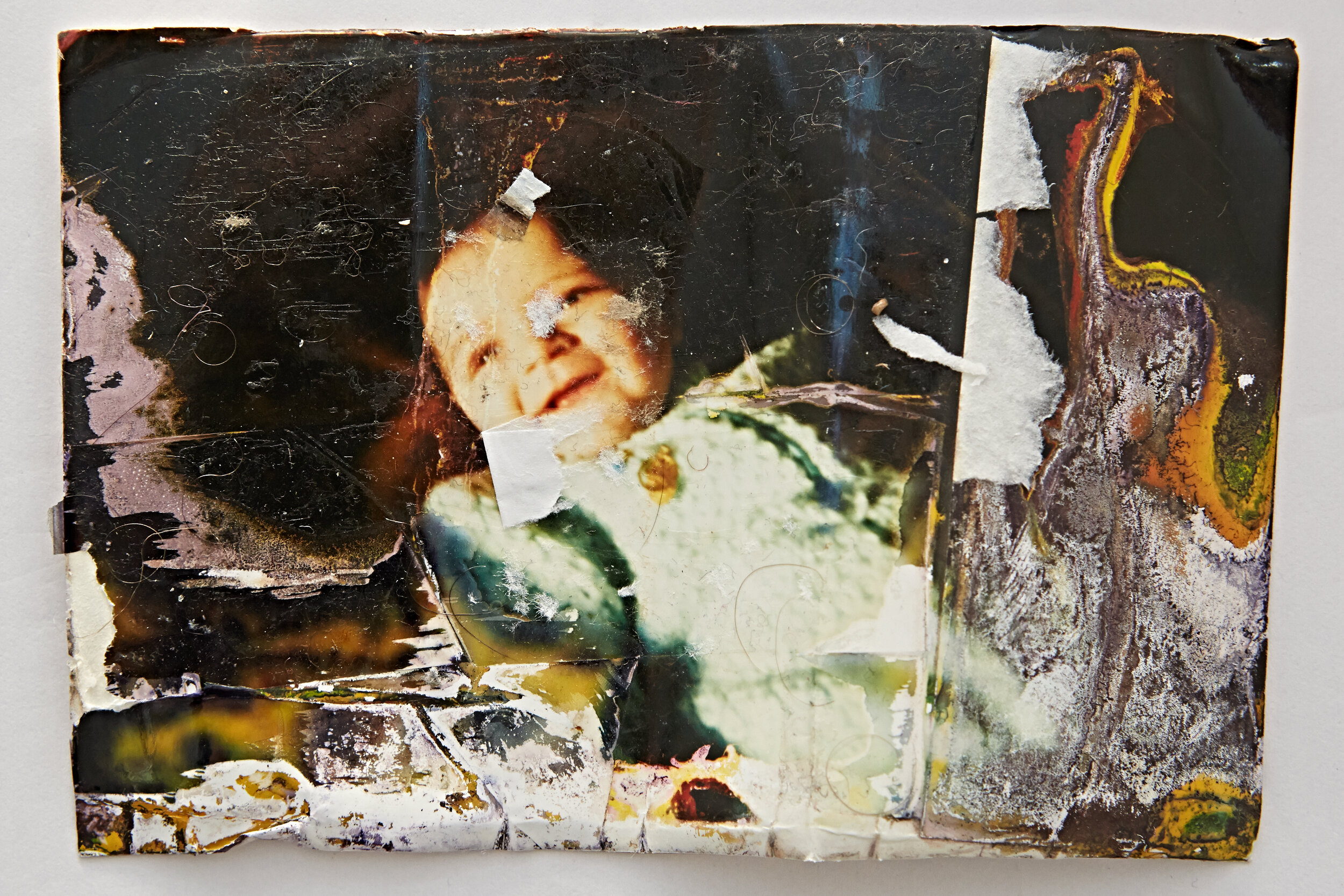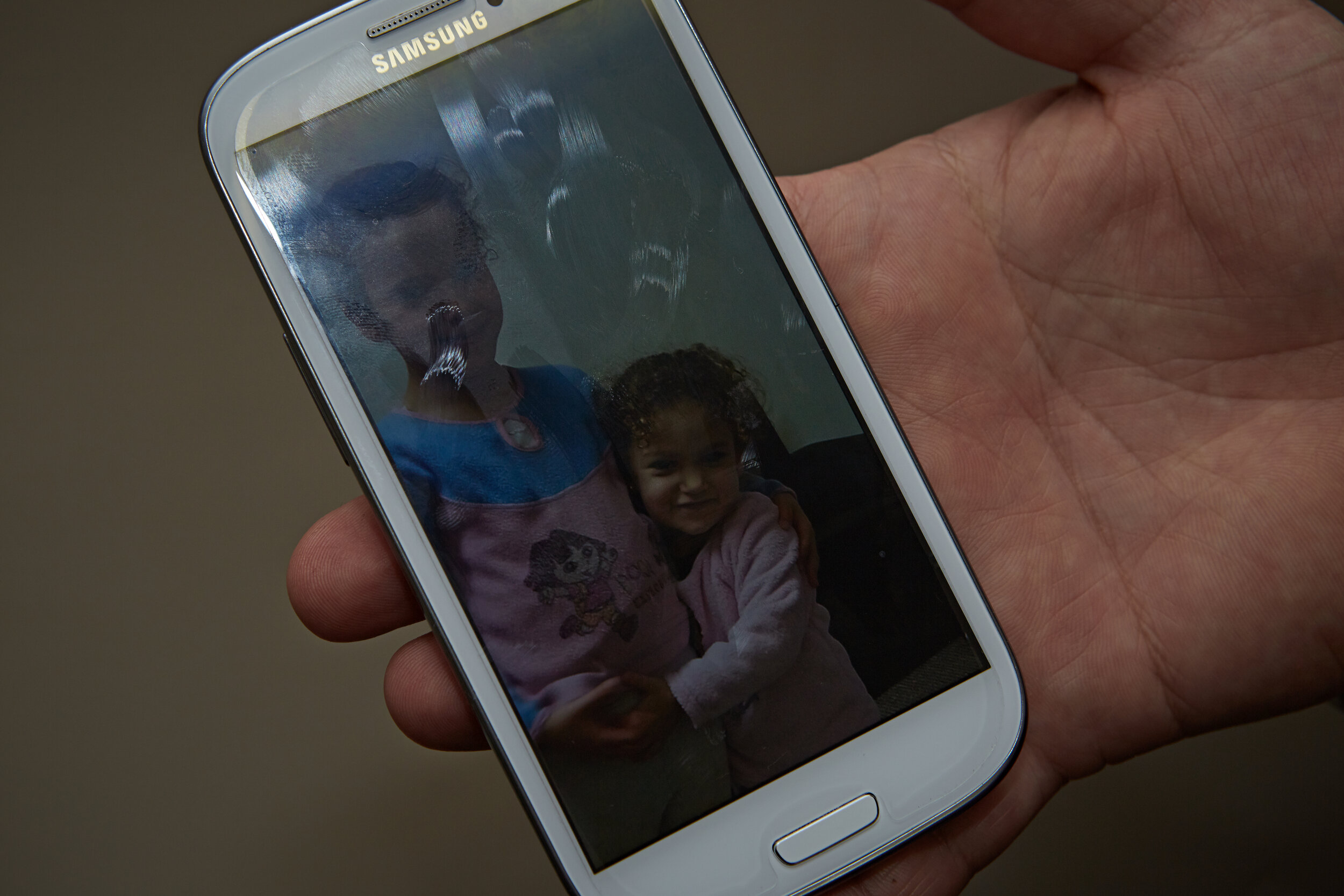Valid for Travel
In 2011, within the context of the Arab Spring, the Syrian people commenced protests against the government, leading to a nationwide unrest which still continues. Amplified by the expansion of ISIS, the situation has become dramatic, leaving individuals and families with no other option than a nomadic life that they did not choose. Hoping to find a better and safer life, many Syrians seek to find refuge in the United Kingdom, but the trip from Syria to the United Kingdom is strewn with obstacles.
'Valid for Travel' is a project that has been built up as an extended documentary series focusing on the condition of Syrian refugees in the United Kingdom. Currently it is estimated that around 5.6 million Syrians have left their country and that approximately 17000 have chosen the United Kingdom as shelter. ‘Valid for travel’ brings together a range of photographic images and personal testimonies as a means to engage with this issue beyond the simplified stereotypes created around immigration. The project aims to raise awareness of the situation in which these people have been put, fleeing the conflict in their homeland.
Throughout the process I have conducted a series of interviews and negotiated portraits with a number of Syrian refugees who have recently arrived in the UK. Photographs have played an important role in how these men have told their own stories that include family photographs, keepsakes they have brought with them from home, while other images taken on mobile phones document the conditions they have endured as refugees. ‘Valid for travel’ therefore stands as a collaborative document that depicts the experience of migration, covering aspects of the Syrians’ pre departure life, their journey and their current liminal status.
“ I spent 3 days on a ship between Libya and Italy, sharing my trip with 800 other people. Eventually the Italian Coast Guard noticed our ferry and they sent three military ships to rescue us. After being put in the camps they wanted to photograph us and take our fingerprints. I refused and one night, at 5am, I ran away from the camp. I went straight away to the rail station, but I was stopped by Police and asked for a passport. I had a paper from the camp, from the Italian army, saying that I am a refugee, and they thought I was legally ok and they let me go. I went to Nice and then to Paris, in France. I spent 15 days in Paris as a homeless person. After I arrived in Calais I managed to hide in the back of a lorry and cross the Channel. My situation here is complicated because I don’t have any education. Therefore it is almost impossible for me to find a job. How can I live here? ”
“ I was 17 and in my final year of high school, getting ready for my final exams… I am from a village called Basuta and I was supposed to go take my exams in Aleppo. Because of the war and the bad situation of this city there was no chance to go there. I stayed home and I kept studying hoping that I could take the exams the following year; unfortunately the situation was worse. My parents realised that Syria would not get back to normal soon, therefore they decided to send me away. One of the reasons was the fact that I don’t have an army document as I didn’t undertake the military service. I could have been accused of hiding my military documents from the governmental army, either because I would try to avoid the battle or because I would be in the rebel army.
I left Syria illegally and I initially went to Izmir, Turkey. I stayed there for one month and fifteen days. After that I tried to travel to Greece. First time I was stopped on the sea by the Greek police and sent back to Turkey, having to sleep outside, in the mountains. The second time the agent that I and other 33 people paid for the trip joined us, too. When we were approaching the Greek police, this person had a knife and he made a whole in the inflatable boat, so the coast guard would save us and take us to the shore. The police took us to a place that was supposed to be a refugee camp but it was more like a prison, being retained there for 14 days. Eventually they send us to Athens. I was lucky that I knew some family friends there and I could live with them.
The first day after I arrived in Athens I was stopped by the local police and arrested just because I was Syrian; they wanted to check if the documents I had with me are genuine (a letter supplied from the refugee camp that certifies my refugee status). I had to wait for 7 hours until a person actually checked my papers and conclude that they are not fake. After a while I and my friends found an agent in Athens who helped us get on a trip to Italy. We took a lorry but the police found us and they put us in prison for 5 days. Afterwards they sent us back to Athens. After two weeks I tried again. This time the lorry was very small and we were supposed to hide in very tight cardboard boxes.
I had to spend around one hour in a box while crossing the border. I spent 24 hours in the lorry because it was travelling on a ferry. When we reached Italy we had to hide in those boxes again, just to be sure we won’t be found at the checkpoint. After I arrived in Italy I tried to get in touch with two of my friends who travelled the same way. I called the agent from Greece to ask about them. He told me that they passed away in the cardboard boxes.
The time spent in Italy was horrible. People were asking for 100 Euros per night just to let me sleep in their house. But I was finally free. Police didn’t know anything about me and after a while I went to France. I slept in Dunkirk for two nights in a forest close to the town. On 5th of December 2014 I jumped in a fridge in the back of a lorry. I crossed the Channel and I eventually arrived in Britain "








